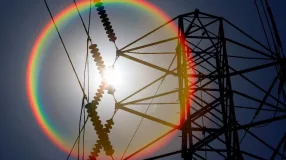On March 6, 2019, a bipartisan group of senators sent a letter to officials at the U.S. Department of Transportation (DOT) advocating for the swift adoption of a proposed update to the Pipeline and Hazardous Materials Safety Administration’s (PHMSA’s) gas transmission pipeline safety regulations.
The letter sent to DOT Secretary Elaine Chao and PHMSA Administrator Skip Elliott by high-ranking members of the Senate Commerce, Science, and Transportation Committee and the Transportation and Safety Subcommittee serves to further highlight the need for PHMSA to update the rules governing gas transmission pipeline safety to reflect technological advancements and improvements in engineering practices made by pipeline operators. In their letter, Chairman Roger Wicker (R-MS), Ranking Member Maria Cantwell (D-WA), Chairwoman Deb Fischer (R-NE) and Ranking Member Tammy Duckworth (D-IL) note,
“This rulemaking has the potential to substantially impact the pipeline system by overhauling PHMSA’s gas transmission regulations and better promoting pipeline safety technologies. Given its significance, we ask you to expedite the completion of this rulemaking…”
The fact that the signatories are an even split of Republican and Democratic senators is indicative of the apolitical nature of the proposed update. Ensuring the safe transportation of natural gas is something that legislators from both sides of the aisle can agree on. This consensus is also exemplified in a joint letter sent in February to DOT Secretary Chao by representatives for the energy industry and public safety advocacy groups, urging Secretary Chao "to act expeditiously to advance this important update to the regulations of the Pipeline and Hazardous Materials Safety Administration.”
Signed by executives from the American Public Gas Association, the American Petroleum Institute, the American Gas Association, INGAA and leaders of the Pipeline Safety Trust and Pipeline Safety Coalition, the Feb. 7 letter notes, “While our organizations sometimes disagree about the specifics of pipeline safety regulations, in this case consensus was achieved on many important pipeline safety topics.” The collective support from industry representatives and public safety advocates serves as a strong indicator that the proposed PHMSA rule is a salient example of commonsense regulations. As the letter describes,
"PHMSA's rule will advance gas transmission pipeline safety by defining specific requirements to facilitate the use of 21st century pipeline safety technologies and processes. The rule provides a foundation upon which PHMSA can better promote the utilization of modern pipeline inspection technologies, recognizing the safety, environmental and consumer benefits that such technologies can provide."
Specifically, the group notes that the proposed rule would help “facilitate the deployment of non-invasive tools that can evaluate pipeline condition and identify pipe needing repair or replacement” and “sets out requirements for operators to test certain existing pipelines to ensure that they meet today’s safety standards.” By establishing modern standards and requirements, the updated gas transmission pipeline safety rule will help drive pipeline companies’ efforts to advance safety initiatives identified by Congress in 2011.
Ultimately, the end goal for all stakeholders with a vested interest in America’s natural gas infrastructure is to ensure pipelines are safe. Updating PHMSA’s gas transmission pipeline safety regulations will facilitate the adoption of cutting-edge technologies and engineering practices, making gas transmission pipelines safer and more reliable.






